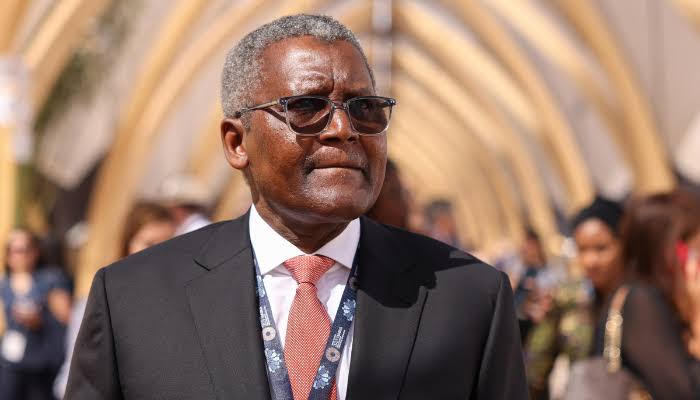
IMF: Nigeria Misses Out as Benin, Rwanda, and Ethiopia Lead Africa’s Fastest-Growing Economies
The International Monetary Fund (IMF) has announced that Nigeria is not among Africa’s fastest-growing economies, as smaller nations such as Benin Republic, Côte d’Ivoire, Ethiopia, Rwanda, and Uganda continue to outperform their regional peers.
According to the IMF, these five countries now rank among the world’s fastest-expanding economies, supported by sound economic reforms, strong fiscal discipline, and growing investment in infrastructure and manufacturing sectors.
The IMF’s Director for Africa, Abebe Selassie, disclosed this on Thursday during the presentation of the latest Sub-Saharan Africa Regional Economic Outlook, where he praised the resilience and policy consistency of these top-performing nations.
“Benin, Côte d’Ivoire, Ethiopia, Rwanda, and Uganda are currently among the world’s fastest-growing economies,” Selassie said, adding that their success stems from macroeconomic stability and sustained reform momentum.
Sub-Saharan Africa’s Growth Outlook Steady at 4.1%
The IMF projects Sub-Saharan Africa’s growth to remain stable at 4.1% in 2025, with a slight improvement expected in 2026. Selassie noted that this outlook reflects progress in macroeconomic stabilization and structural reforms across key economies.
“Global headwinds continue to challenge recovery efforts,” he said. “Slower global demand, softer commodity prices, and tighter financial conditions are testing the region’s resilience.”
Nigeria’s Growth Outlook Improves, But Still Trails Regional Leaders
Although Nigeria’s growth forecast has been revised upward, the IMF clarified that Africa’s largest economy still lags behind regional peers in terms of pace and diversification.
The IMF now projects Nigeria’s GDP to expand by 3.9% in 2025, up from its earlier forecast of 3.4%. This improvement is attributed to higher oil production, growing investor confidence, and fiscal policy reforms under the current administration.
Recent data from the National Bureau of Statistics (NBS) also showed that Nigeria’s economy grew by 4.23% year-on-year in the second quarter of 2025 — an improvement from 3.48% in the same period last year.
However, the IMF warned that Nigeria’s growth remains below potential, urging the government to intensify efforts in power sector reforms, inflation control, and industrial diversification to boost non-oil revenues.
Debt Risks and Banking Sector Vulnerabilities Rising
The IMF also raised alarms over increasing financial vulnerabilities in Nigeria and other African countries, particularly due to rising domestic borrowing by governments.
Selassie explained that as access to foreign financing becomes limited, many African governments have turned to domestic banks, creating a dangerous “sovereign-bank nexus.”
“In about half of Sub-Saharan African countries, public debt is now largely held by domestic financial institutions,” he warned. “This deepens the link between government debt and banking sector risks.”
He advised African governments to strengthen regulatory frameworks, increase capital buffers, and maintain healthy fiscal policies to reduce the risk of banking crises.
Policy Priorities: Boost Revenue, Strengthen Debt Management
The IMF outlined two major policy priorities for African economies:
- Domestic revenue mobilisation — by modernising tax systems through digitalisation, cutting wasteful tax expenditures, and improving compliance.
- Transparent debt management — by publishing comprehensive debt data, improving budget oversight, and ensuring accountability in public spending.
Selassie stressed that these reforms must be implemented in a way that builds public trust, enhances institutional capacity, and ensures equitable impact across all income levels.
Nigeria’s Reform Progress Praised
Meanwhile, IMF officials at the 2025 IMF/World Bank Annual Meetings in Washington, D.C. commended Nigeria’s recent fiscal and monetary policy adjustments, describing them as “broadly positive.”
Davide Furceri, head of the IMF’s Fiscal Affairs Department, said Nigeria’s neutral fiscal stance — balancing spending with revenue — aligns with monetary efforts to curb inflation without stifling growth.
“Nigeria has made significant progress in streamlining its tax code, improving revenue administration, and reducing wasteful spending,” Furceri noted.
The IMF also highlighted the benefits of Nigeria’s exchange rate unification and tighter monetary policy, which have helped strengthen foreign exchange reserves and stabilize inflation, now down from over 30% last year to around 23%.
IMF Warns of External Headwinds, Urges Reforms
Despite the positive reforms, the IMF cautioned that Sub-Saharan Africa still faces external threats, including volatile commodity prices, fluctuating capital flows, and tighter global financial conditions.
Tobias Adrian, the IMF’s Director of Monetary and Capital Markets, said flexible exchange rates remain crucial for economies like Nigeria’s to absorb external shocks and maintain stability.
Assistant Director Jason Wu added that while Nigeria’s fiscal and FX transparency has improved, countries must continue building resilience through discipline, debt management, and long-term structural reforms.
“The key is to strengthen fundamentals and attract sustainable investment,” Wu said. “That’s how African economies can withstand future global turbulence.”
Key Takeaways
- Nigeria not listed among Africa’s fastest-growing economies.
- Benin, Côte d’Ivoire, Ethiopia, Rwanda, and Uganda lead with strong reform-driven growth.
- IMF forecasts Sub-Saharan Africa’s GDP at 4.1% in 2025.
- Nigeria’s growth upgraded to 3.9%, but challenges persist in inflation, power, and fiscal balance.
- Domestic borrowing and high debt levels pose risks to financial stability.
- Policy reforms and transparent debt management seen as vital to sustaining progress.
About Author
Discover more from BillionBill
Subscribe to get the latest posts sent to your email.


